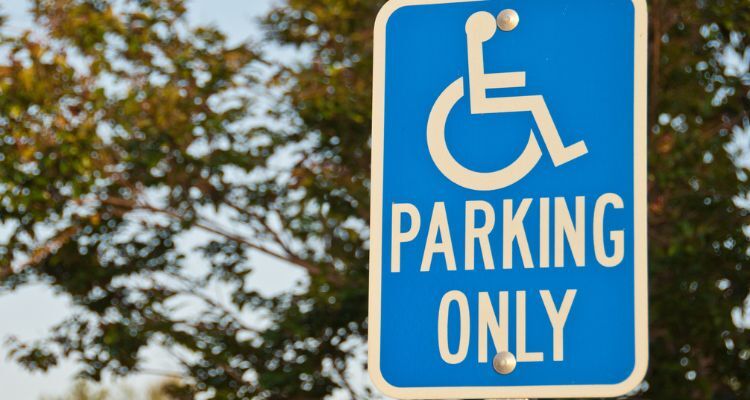
Tips for Making the Most of Your Handicap Placard in Oregon
Disability tags, or handicap placards, are essential tools for individuals with limited mobility, enabling them to park in accessible spaces and avoid the challenges of walking long distances. In OR, these tags grant parking privileges that make navigating urban spaces, healthcare facilities, and shopping centers more manageable. However, to fully benefit from these privileges, it’s essential to understand how to use and display your disability tag correctly and to be aware of the specific rules in OR regarding accessible parking. In this article, we’ll explore the best tips for making the most of your handicap placard in Oregon, including guidelines for use, regulations, and answers to frequently asked questions.
Introduction to Handicap Placards in Oregon
Disability tags in OR provide individuals with disabilities the right to park in accessible spots that are closer to building entrances, making it easier to navigate public spaces. These tags, issued by the Oregon Department of Motor Vehicles (DMV), help ensure that people with mobility impairments have access to essential parking spaces.
Types of Disability Tags Available in OR
In OR, the DMV issues these types of handicap permits:
- Permanent Disability Tags: These are for individuals with long-term or permanent disabilities. Permanent tags must be renewed every eight years.
- Temporary Disability Tags: Issued for short-term disabilities, such as injuries or conditions that impair mobility temporarily. They are valid for up to six months.
- Family Tags: Issued to institutions or individuals who regularly transport individuals with disabilities.
Additionally, there are Disabled Veteran Plates for eligible veterans with disabilities related to their service. These plates provide similar handicap parking privileges as the disability tags.
Eligibility Requirements for a Disabled Permit in Oregon
Eligibility for a disability tag in OR is based on certain medical conditions that limit mobility. To qualify, you must meet at least one of the following criteria:
Physical Disabilities: Individuals with mobility impairments that substantially limit their ability to walk, such as those who use wheelchairs, crutches, or other mobility aids.
Vision Impairments: Those who are legally blind or have significant visual impairments that affect their mobility.
Medical Conditions: Individuals with certain medical conditions that impair their ability to walk, including but not limited to respiratory issues, heart conditions, or neurological disorders.
Temporary Disabilities: In some cases, individuals with temporary disabilities (e.g., a severe injury or surgery recovery) may qualify for a temporary disabled pass.
A licensed healthcare provider must verify your eligibility by completing and signing a medical certification form as part of the application process.
How to Apply for a Disabled Permit in Oregon
Applying for an Oregon handicap placard involves a few straightforward steps:
- Obtain the Application: Download the application form from the state DMV website or pick it up from a DMV office.
- Complete the Medical Certification: Have a licensed HandicapMD healthcare provider fill out the medical certification section, confirming your eligibility for the tag.
- Submit the Application: You can submit your completed application in person at a DMV office or by mail. There is no fee for the tag itself, but vehicle plates incur a small fee.
How to Obtain a Permit Online with HandicapMD.com
HandicapMD.com offers a convenient telehealth service that simplifies the process of getting your disabled parking permit by allowing you to:
- Sign Up: Visit the HandicapMD.com website and fill out the necessary form to schedule a consultation.
- Consultation: A certified doctor will assess your medical records and determine whether you meet the eligibility criteria.
- Medical Certification: The doctor will complete the certification section of the Disabled Person Parking Permit Placard Application for Individuals (Form 735-265).
- Submit Your Application: Once your form is completed, submit it to the state's DMV either in person or by mail.
Why Getting the Permit Online is Beneficial
- Convenience: With HandicapMD.com, you don’t need to visit a doctor’s office. You can complete the entire process from home.
- Expertise: HandicapMD doctors specialize in understanding ADA guidelines and determining eligibility for disabled passes, ensuring a smoother process.
- Efficiency: The service allows for quick evaluations, helping you get your disability pass faster than traditional method.
Renewing and Replacing Your Disability Tag
Disability tags in OR need to be renewed periodically. For permanent tags, renewal is required every eight years. Temporary tags are valid for up to six months, after which you may apply for another temporary tag if necessary. If your tag is lost, stolen, or damaged, you can request a replacement by completing a replacement form and submitting it to the state DMV.
Tips for Using Your Handicap Placard Effectively in Oregon
1. Display Your Tag Correctly
- Hanging the Tag: Always hang your handicap placard from the rearview mirror when parked. Ensure it is clearly visible from the front windshield to parking enforcement officers. Remove the tag while driving to prevent obstruction of your view.
- Face It Outward: The side displaying the expiration date and unique identification number should face outward so it can be checked easily.
2. Know Where You Can Park
- Designated Accessible Parking Spaces: Your disability tag allows you to park in spaces marked with the international symbol of access. These spaces are often wider and strategically located to facilitate entry and exit from vehicles equipped with ramps or lifts.
- Time-Restricted Parking: In some cases, your disability tag may allow you to park in time-limited spaces without following the usual time restrictions. Always check local ordinances, as this may vary by city or county.
- Metered Parking Exemptions: In some areas, authorized holders are exempt from paying at metered parking. However, this benefit is not universal throughout the state, so it’s important to know the specific rules of the municipality you are in.
3. Keep Your Tag Clean and Undamaged
- Protect Your Tag: Use a protective cover to keep your tag clean and free from wear and tear. This helps ensure that important information like the expiration date and permit number remains legible.
- Storage: Store your tag in a safe, designated place when not in use, such as the glove compartment, to prevent it from getting lost or damaged.
4. Monitor Expiration Dates
- Renew in Advance: Be mindful of the expiration date on your tag. Renew your permanent disability tag every eight years to avoid lapses in parking privileges. Temporary tags require new medical certification if an extension is needed.
- Set Reminders: Use a digital calendar or physical planner to remind yourself to start the renewal process at least a month before the expiration date.
5. Adhere to Proper Use
- Authorized Use Only: Only use the tag when the person it was issued to is in the vehicle, whether as a driver or passenger. Allowing unauthorized use can result in fines and suspension of the tag.
- Misuse Penalties: Misusing a disability tag can lead to significant penalties, including fines, suspension, or revocation of the tag, and potential legal action.
6. Educate Family Members and Caregivers
- Proper Handling: If you have family members or caregivers who drive you, ensure they understand how to use the tag correctly. They should know that the tag is only valid when you are present in the vehicle.
- Rules and Penalties: Make sure they are aware of the legal consequences of misuse to avoid accidental violations.
7. Understand Reciprocity with Other States
- Traveling Out of State: Your OR-issued disability tag is generally recognized in other states due to reciprocal agreements. However, parking regulations can differ, so check the rules of the state or city you are visiting to ensure compliance.
- International Travel: If you plan to use your tag outside the United States, research whether it will be accepted and if any additional documentation is needed.
Common Mistakes to Avoid
1. Leaving the Tag Hanging While Driving: Leaving your tag hanging from the rearview mirror while driving is one of the most common mistakes and can obstruct your view, leading to unsafe driving conditions. Always remove the tag before driving.
2. Using an Expired Tag: Failing to renew your tag on time can result in parking fines and the inconvenience of not having legal access to accessible parking. Check your expiration date regularly and renew well in advance.
3. Misusing the Tag: Allowing someone else to use your disability tag when you are not in the vehicle is considered misuse and can result in penalties. Educate everyone who might use your vehicle on this rule.
4. Improper Display: Make sure the tag is displayed correctly and visibly when parked. Tags that are not hung properly or that have flipped over can lead to parking tickets or other issues.
5. Not Reporting a Lost or Stolen Tag: If your disability tag is lost or stolen, report it to the state DMV immediately and apply for a replacement. Delays in reporting could result in unauthorized use, fines, or difficulties when reapplying.
Where and When You Can Use Your Disability Tag
A disability tag in OR grants access to various accessible parking spots, but it is essential to use it only when needed and only when the eligible individual is present in the vehicle. The tag cannot be used by other people unless the eligible person is accompanying them.
Understanding Accessible Parking Spots in Oregon
In OR, accessible parking spots are designated with blue signs and the international symbol of accessibility (wheelchair symbol). They’re often located close to building entrances for ease of access. When parking in these spots:
- Make Sure the Spot is Clearly Marked: Some parking spaces might look accessible but aren’t clearly marked. Avoid any spots that do not have the designated symbol or blue line markings.
- Do Not Park in Striped Access Aisles: These aisles are next to accessible spaces and are designed to provide space for wheelchair users to enter or exit their vehicle. Parking in these areas can result in fines.
Using Your Tag for Metered and Time-Limited Parking
In many parts of OR, disability tag holders are allowed to park in metered spots without paying fees. However, some time limitations may still apply depending on local ordinances. Always check with local rules to confirm the specific parking regulations in your area. Generally, OR cities provide extended parking privileges for tag holders, but limits are in place to prevent abuse.
Rules and Etiquette for Disability Tag Holders
Using a disability tag comes with specific responsibilities:
- Use It Only When Needed: Only use the tag when the person it’s issued to is in the vehicle. Misuse can result in fines or even the loss of the tag.
- Avoid Parking in Non-Accessible Spaces Marked as Reserved: Even with a disability tag, do not park in spaces marked for other reserved uses (e.g., loading zones, fire lanes).
- Observe Time Limits: Some accessible spots may have time limits. Follow posted signs and avoid overstaying to ensure accessibility for others who need it.
Avoiding Common Mistakes with Your Disability Tag
Avoid these common mistakes to ensure proper and compliant use of your disability tag:
- Forgetting to Renew: Renew your tag before it expires to prevent penalties.
- Displaying the Tag While Driving: This can obstruct your view and is against OR’s road safety regulations.
- Allowing Others to Use Your Tag: Your tag should only be used when you, as the eligible individual, are present.
Reporting Misuse or Abuse of Disability Tags
Misuse of disability tags, such as using a tag without the eligible person present, is illegal. If you observe someone misusing a disability tag, you can report it to local law enforcement or the Oregon DMV. Provide details about the vehicle, license plate number, and the observed misuse. Responsible use helps keep accessible spots available for those who need them.
Additional Resources for Disability Tag Holders in OR
OR offers various resources to support people with disabilities, including:
- OR DMV: Provides information on disability tags, accessible parking, and the application process.
- Local Accessibility Programs: Many cities in OR have specific programs to aid individuals with disabilities in navigating public transportation and parking options.
- OR Department of Transportation: Offers resources for accessible transportation and parking rules across the state.
FAQs About Using Disability Tags in OR
Q1: Can I let someone else use my disability tag if they’re running errands for me?
No, the tag is only for use when the eligible individual is present in the vehicle. Misuse may lead to fines and even revocation of the tag.
Q2: How do I display my disability tag properly?
Hang the tag on the rearview mirror while the vehicle is parked, ensuring that all necessary information is visible. Remove it when driving to avoid obstructing your view.
Q3: Can I park for free at metered spots in OR with a disability tag?
In most areas, yes. Many OR cities allow free parking at metered spots for vehicles with a valid disability tag, but time restrictions may still apply depending on local regulations.
Q4: Do I need a new doctor’s certification to renew my permanent disability tag?
No, permanent disability tags typically do not require new medical certification for renewal. However, temporary tags will require updated certification if an extension is needed.
Q5: What should I do if my disability tag is stolen?
Report the theft to the local police and contact the state DMV to request a replacement tag. You may need to complete a replacement form and provide identification.
Q6: How can I report someone misusing a disability tag?
If you notice someone using a tag fraudulently, contact local law enforcement or the DMV, providing details such as the license plate number and description of the misuse.
Q7: How do I apply for a disability tag in OR?
To apply for a disability tag, fill out the Application for Parking Permit for Persons with Disabilities (Form 735-265) and have the medical certification section completed by a licensed physician. Submit the application in person or by mail to the state DMV.
Q8: Can I use my OR disability tag in other states?
Yes, most states in the U.S. recognize disability tags issued by OR. However, always check local regulations to ensure that you are following the specific rules of the area you’re visiting.
Q9: Is there a fee for a disability tag in OR?
Temporary and permanent tags are typically issued without a fee, but there may be a cost associated with disability license plates or replacements. Check with the state DMV for up-to-date fee information.
Q10: How do I renew my permanent disability tag?
Renew your permanent tag by submitting a renewal application to the state DMV. Permanent tags must be renewed every eight years, and a new medical certification may not be required unless specified.
Conclusion: Maximizing Accessibility with Your Disability Tag
Using your handicap placard correctly in Oregon can make navigating public spaces easier and more convenient, enhancing your independence. By following state regulations, displaying your tag properly, and adhering to local parking rules, you can make the most of your disability tag while ensuring compliance. Always remember to renew your tag on time, report any lost or stolen tags promptly, and use your tag responsibly. Staying informed about OR’s accessibility guidelines allows you to fully benefit from your disability tag and contribute to a more accessible community for all.
.png)






